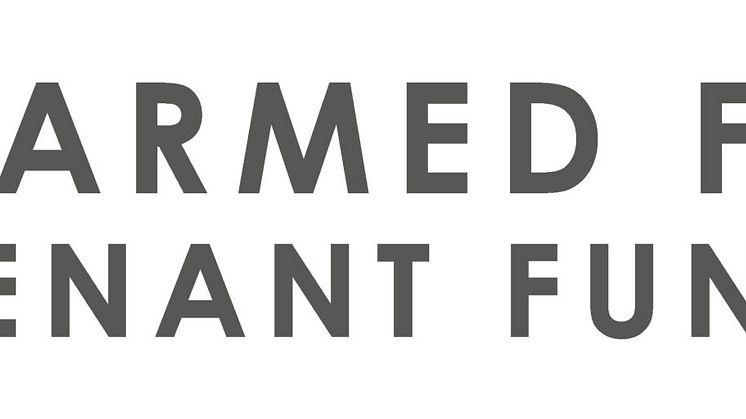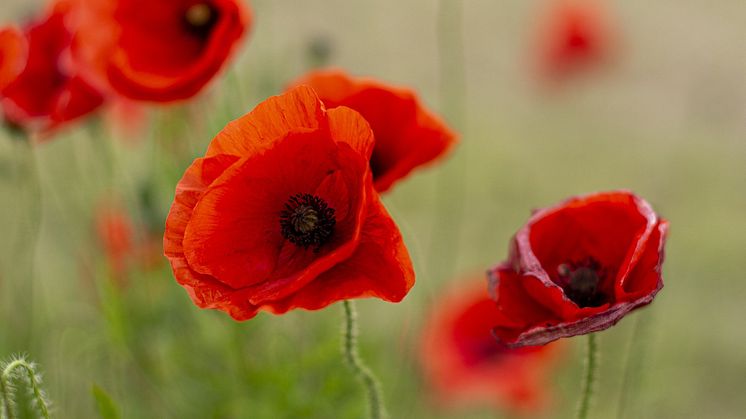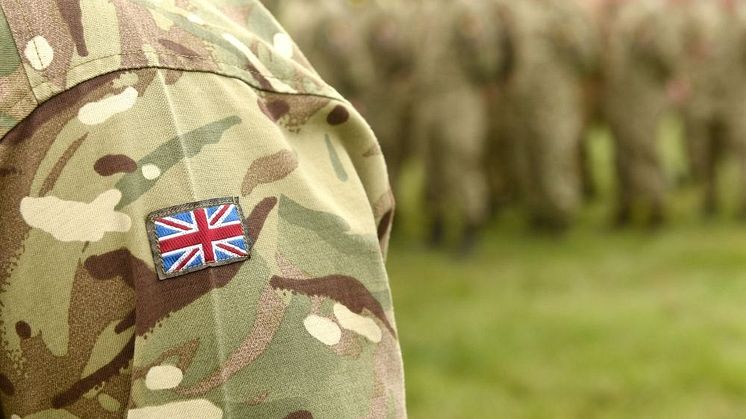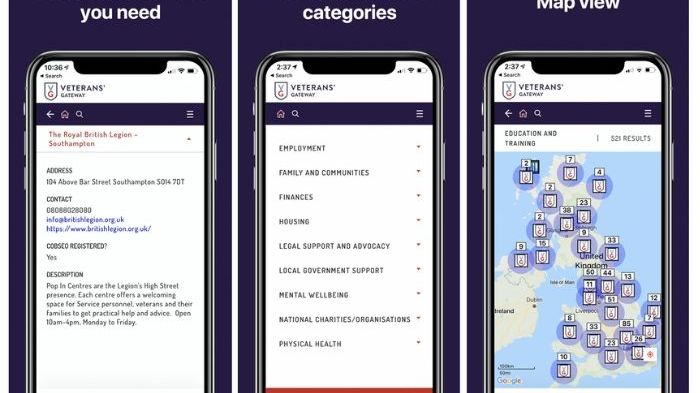
Press release -
The knock on the door that military families never forget
As we remember and honour the fallen through remembrance traditions, new research from academics at Northumbria University has revealed the true experiences of bereaved military families, following a first-of-its-kind study exploring the impact of death in military service on surviving family members.
While losing a loved one is devastating at any time, the sudden nature and circumstances surrounding the death of a member of the armed forces can pose unique challenges for family members.
There is an increased likelihood that the deceased will be relatively young, therefore in this case leaving young families behind. As well as often being sudden, death can be traumatic, and in the public eye with significant media intrusion. If it is an operational death in combat, there may also be mixed feelings as to whether the death was a ‘just cause’ or not.
Recognising the lack of research on the impact on military families of a sudden loss, the War Widows Association, an advocacy group campaigning to improve the conditions of war widows and their dependants, identified a need for an investigation into how bereaved military families are notified and subsequently cared for.
Over the last two years, and working in collaboration with the Armed Forces Covenant Fund Trust and the War Widows Association, academics from Northumbria University’s Northern Hub for Veterans and Military Families Research have explored the impact that death in military service has on the surviving family. A report which reflects the personal experiences of more than 270 people and the findings of the study has been launched in partnership with the Ministry of Defence.
The report specifically explores how families are informed about the death of their loved one, the long-term financial, housing and emotional impacts of their loss and how families are affected by media interest. Research methods, key findings and recommendations for improvements in the way bereaved military families are supported are also outlined in the report.
Reflecting on the study, Gill McGill, a Lecturer in Health Policy and Research at Northumbria University and a Principal Investigator on the study, said: “The ethos of the Hub is to provide an evidence base for policy change and to make improvements that will benefit the wellbeing of veterans and their families.
“Whilst the results demonstrate recent improvements in the type of support and resources that the participants in this study experienced, it is evident that further improvement is required.”
The Ministry of Defence provides bereaved family members with an information pack after being notified of a death in service. Known as ‘The Purple Pack’, it provides family members with practical support with registering the death, as well as guidance on housing and accommodation, funeral arrangements, entitlements and benefits and details of bereavement and welfare support organisations. “The hope is that we can work with the MOD, key stakeholders and with the families to review the guidance and the Purple Pack in light of the research findings”, added Gill.
Colonel Clare Waterworth MBE, Head of Armed Forces Welfare Policy, Armed Forces People Support, Armed Forces People Policy and Defence People Team in the Ministry of Defence, said: “The MOD are grateful to Northumbria University for the research carried out in the Knock on the Door study.
“We are constantly seeking to examine our approach to bereaved families to improve outcomes and this research is a valuable resource that will allow us to do that. We are particularly indebted to those individuals who took part in the study with a view to improving our approach to this incredibly difficult experience for families in the future.”
Receiving the news
The findings highlight that one third of participants were on their own when they received the news and half of participants did not receive all the information they needed when they were notified of the death of their partner or family member.
Whilst participants felt supported with funeral arrangements, the findings suggest that children were less likely to be consulted in planning funeral arrangements. The report suggests further provision is required to support parents in involving children from receipt of the news onwards. Moreover, the research has shown that more recently bereaved family members have experienced detrimental effects on relationships with their wider family.
Media intrusion
A significant finding of this study shows that newly bereaved family members experienced media interest following the death of their spouse or loved one. Despite best efforts to protect the grieving family from this intrusion, only 29% of participants felt that they received sufficient guidance and support to handle the media and there are many examples provided, as part of the participant interviews, of newspaper reporters and television cameras invading privacy. The research team believe there is therefore a need to consider further protection of this, particularly with regard to the risk of the bereaved hearing the news before official notification.
Long-term impact
Findings suggest that whilst there have been improvements, in terms of financial and administrative support, only a third of the family members received financial support without seeking it for themselves and 47% of respondents who lived in military accommodation received advice or help with moving home.
The findings from the study are positive with regards to bereavement and welfare support and show there have been improvements in such support experienced by surviving family members in recent years.
Nevertheless, the report highlights the need for improvements in the availability of peer support, access to long-term counselling, and additional support for bereaved children following a sudden or traumatic death of a family member.
The Northern Hub for Veterans and Military Families Research is a collective of academics, service providers and service users with an interest in improving the health and social wellbeing of veterans and their families across the lifespan. To read the full report, contact Gill McGill at gill.mcgill@northumbria.ac.uk.
<ENDS>
Notes to editors:
About Northumbria University
Northumbria University, Newcastle is a research-rich, business-focused, professional university with a global reputation for academic excellence.
About the Northern Hub for Veterans and Military Families Research
The Northern Hub for Veterans and Military Families Research is a collective of academics, service providers and service users with an interest in improving the health and social wellbeing of veterans and their families across the lifespan.
About the Armed Forces Covenant Fund Trust
The Covenant Fund was previously administered by an in-house MOD team and the funding has moved to the new independent trust as from 1 April 2018. The Armed Forces Covenant Fund Trust manages the grant programmes funded by the Covenant Fund. You can find out more about our work at www.covenantfund.org.uk.
The Covenant Fund is an annual grant of £10 million which is paid to the Armed Forces Covenant Fund Trust to fund grant programmes that support the armed forces community.
The Covenant Fund makes grants in support of the Armed Forces Covenant. There are four overall themes that the Covenant Fund must take into account now and in future years when making decisions.
- Non-core healthcare services for veterans;
- Removing barriers to family life;
- Extra support after service for those that need help; and
- Measures to integrate military and civilian communities and allow the Armed Forces community to participate as citizens
About the Armed Forces Covenant
The Armed Forces Covenant is a promise from the nation that those who serve or have served, and their families, are treated fairly.
You can find out more at https://www.armedforcescovenant.gov.uk/
Topics
Categories
Northumbria is a research-rich, business-focused, professional university with a global reputation for academic excellence. Find out more about us at www.northumbria.ac.uk --- Please contact our Media and Communications team at media.communications@northumbria.ac.uk with any media enquiries or interview requests ---












